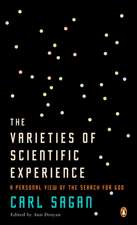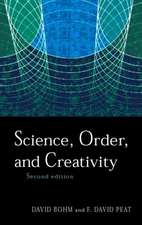The Multiple Realization Book
Autor Thomas W. Polger, Lawrence A. Shapiroen Limba Engleză Hardback – 30 iun 2016
| Toate formatele și edițiile | Preț | Express |
|---|---|---|
| Paperback (1) | 238.02 lei 31-38 zile | |
| OUP OXFORD – 7 iul 2016 | 238.02 lei 31-38 zile | |
| Hardback (1) | 591.22 lei 31-38 zile | |
| OUP OXFORD – 30 iun 2016 | 591.22 lei 31-38 zile |
Preț: 591.22 lei
Preț vechi: 789.95 lei
-25% Nou
Puncte Express: 887
Preț estimativ în valută:
113.13€ • 118.12$ • 93.63£
113.13€ • 118.12$ • 93.63£
Carte tipărită la comandă
Livrare economică 24-31 martie
Preluare comenzi: 021 569.72.76
Specificații
ISBN-13: 9780198732891
ISBN-10: 0198732899
Pagini: 274
Dimensiuni: 142 x 223 x 19 mm
Greutate: 0.45 kg
Editura: OUP OXFORD
Colecția OUP Oxford
Locul publicării:Oxford, United Kingdom
ISBN-10: 0198732899
Pagini: 274
Dimensiuni: 142 x 223 x 19 mm
Greutate: 0.45 kg
Editura: OUP OXFORD
Colecția OUP Oxford
Locul publicării:Oxford, United Kingdom
Recenzii
This book is a very welcome addition to the literature, and should be essential reading for anyone accepting widespread multiple realisation by default.
By offering an original recipe of multiple realization as such, Polger and Shapiro carry out an impressive task in debunking nearly all well-known (and also some less known) putative examples of multiple realization ... this is a beautiful book and I very much enjoyed reading it. Polger and Shapiro's writing is clear and engaging, and their presentation of philosophical problems and scientific cases is very illuminating. From the opening page, they make it clear that they see 'philosophy of mind as a species of philosophy of science', and the result is a very nice and empirically informed philosophy of science book.
Even if you would not buy the ultimate message of the book, it still contains plenty of valuable material and enlightening critical analyses of various aspects of the multiple realization thesis. This is an important book, and neither friends nor foes of multiple realization can afford to ignore it.
Indeed, their book represents the best of what philosophy should be - a deep questioning, with considered argument, about what was once thought to be a largely settled matter... Polger and Shapiro also pay close attention to the wide array of evidence that philosophers have cited in support of multiple realization... the book is filled with novel insights.
This welcome book-length venture compiles and expands on previous arguments by the two authors, and presents a strong challenge to what they see as current multiple realization dogma - perhaps 'complacency' is more aptfound throughout the philosophy of the non-fundamental sciences. The book also contains a helpful guide to teaching and learning: every chapter is accompanied by a list of key questions and references for those using the book to navigate the terrain more broadly. Above all, though, the clear prose and accessible examples should engage a diverse readership.
This book nicely brings together work that has had substantial impact on the way philosophers view the relative merits of functionalism and type-identity theory -- and should be of interest to philosophers, psychologists, and neuroscientists, both beginning and advanced. And if it raises questions that generate a "third wave" of debate and inquiry, then this is progress indeed.
By offering an original recipe of multiple realization as such, Polger and Shapiro carry out an impressive task in debunking nearly all well-known (and also some less known) putative examples of multiple realization ... this is a beautiful book and I very much enjoyed reading it. Polger and Shapiro's writing is clear and engaging, and their presentation of philosophical problems and scientific cases is very illuminating. From the opening page, they make it clear that they see 'philosophy of mind as a species of philosophy of science', and the result is a very nice and empirically informed philosophy of science book.
Even if you would not buy the ultimate message of the book, it still contains plenty of valuable material and enlightening critical analyses of various aspects of the multiple realization thesis. This is an important book, and neither friends nor foes of multiple realization can afford to ignore it.
Indeed, their book represents the best of what philosophy should be - a deep questioning, with considered argument, about what was once thought to be a largely settled matter... Polger and Shapiro also pay close attention to the wide array of evidence that philosophers have cited in support of multiple realization... the book is filled with novel insights.
This welcome book-length venture compiles and expands on previous arguments by the two authors, and presents a strong challenge to what they see as current multiple realization dogma - perhaps 'complacency' is more aptfound throughout the philosophy of the non-fundamental sciences. The book also contains a helpful guide to teaching and learning: every chapter is accompanied by a list of key questions and references for those using the book to navigate the terrain more broadly. Above all, though, the clear prose and accessible examples should engage a diverse readership.
This book nicely brings together work that has had substantial impact on the way philosophers view the relative merits of functionalism and type-identity theory -- and should be of interest to philosophers, psychologists, and neuroscientists, both beginning and advanced. And if it raises questions that generate a "third wave" of debate and inquiry, then this is progress indeed.
Notă biografică
Thomas Polger received his PhD in philosophy from Duke University in 2000, and joined the faculty of the University of Cincinnati in the same year. His previous book, Natural Minds, was a defense of the mind-brain identity theory. He is the author of numerous articles in philosophy of science, philosophy of mind, and metaphysics. Polger is also a past-president of the Southern Society for Philosophy and Psychology.Lawrence Shapiro received his PhD in philosophy from the University of Pennsylvania in 1992 and has been on the faculty at the University of Wisconsin since 1993. He has published numerous articles and several books on a range of topics within philosophy of psychology, philosophy of mind, and philosophy of cognitive science.




















